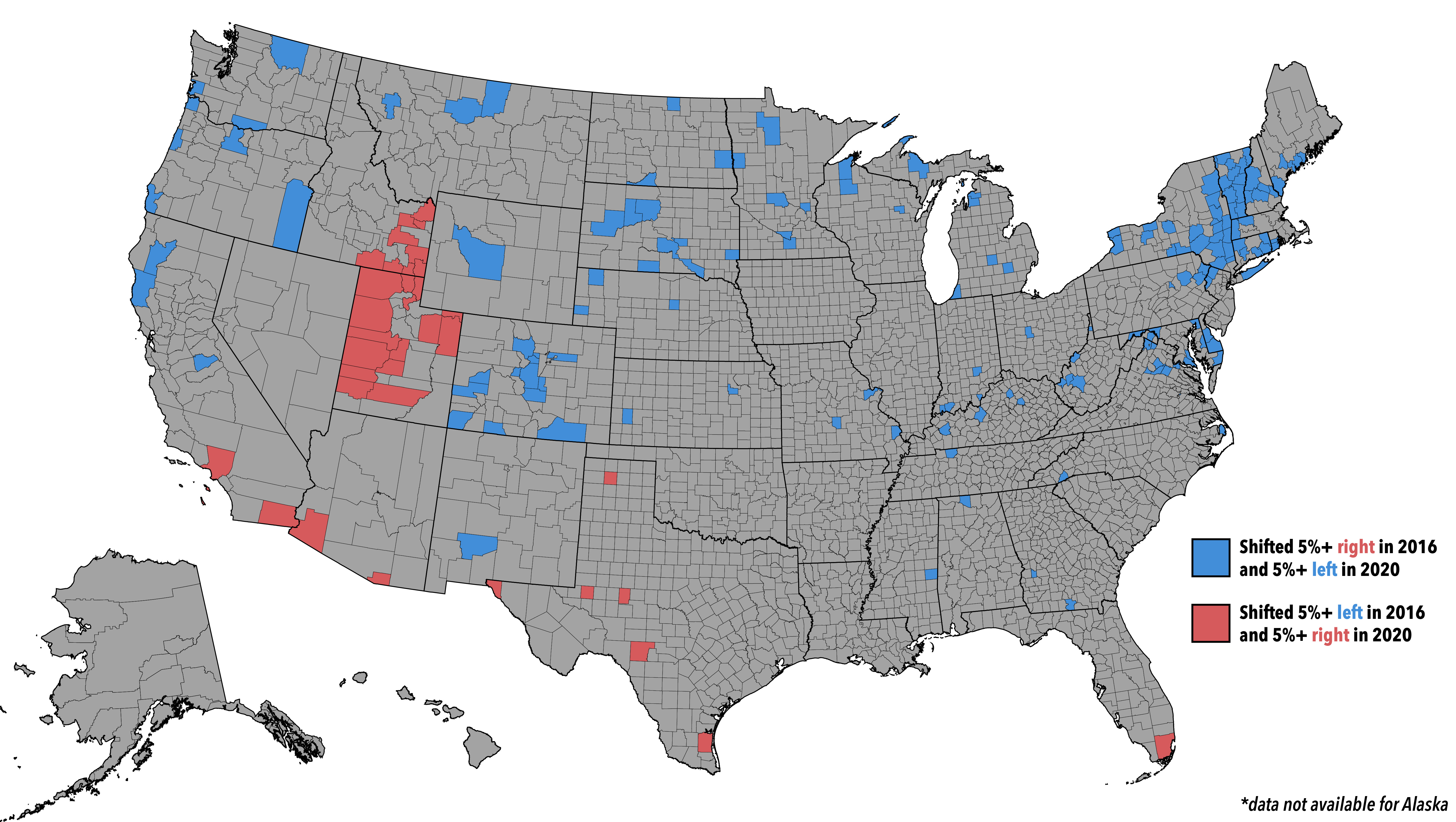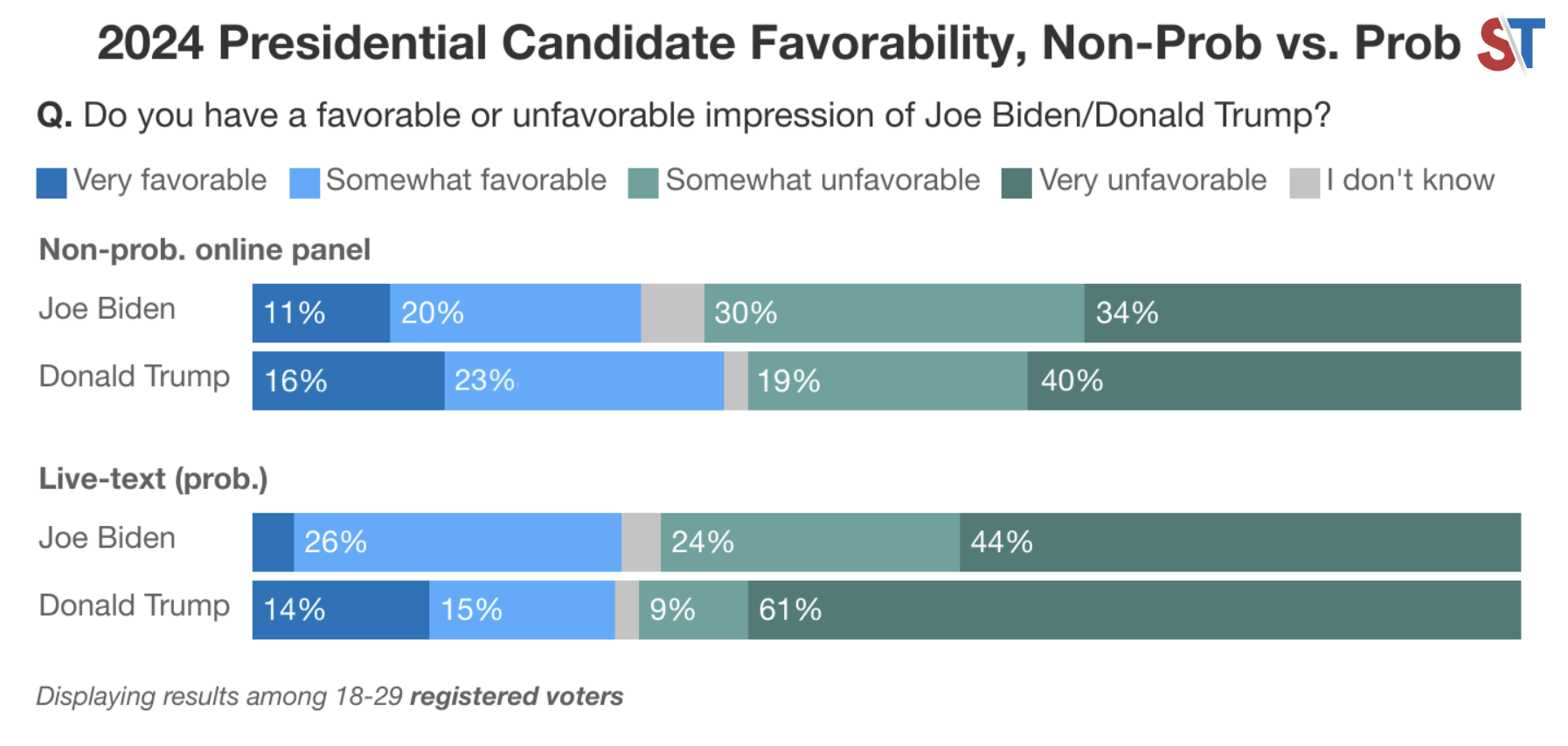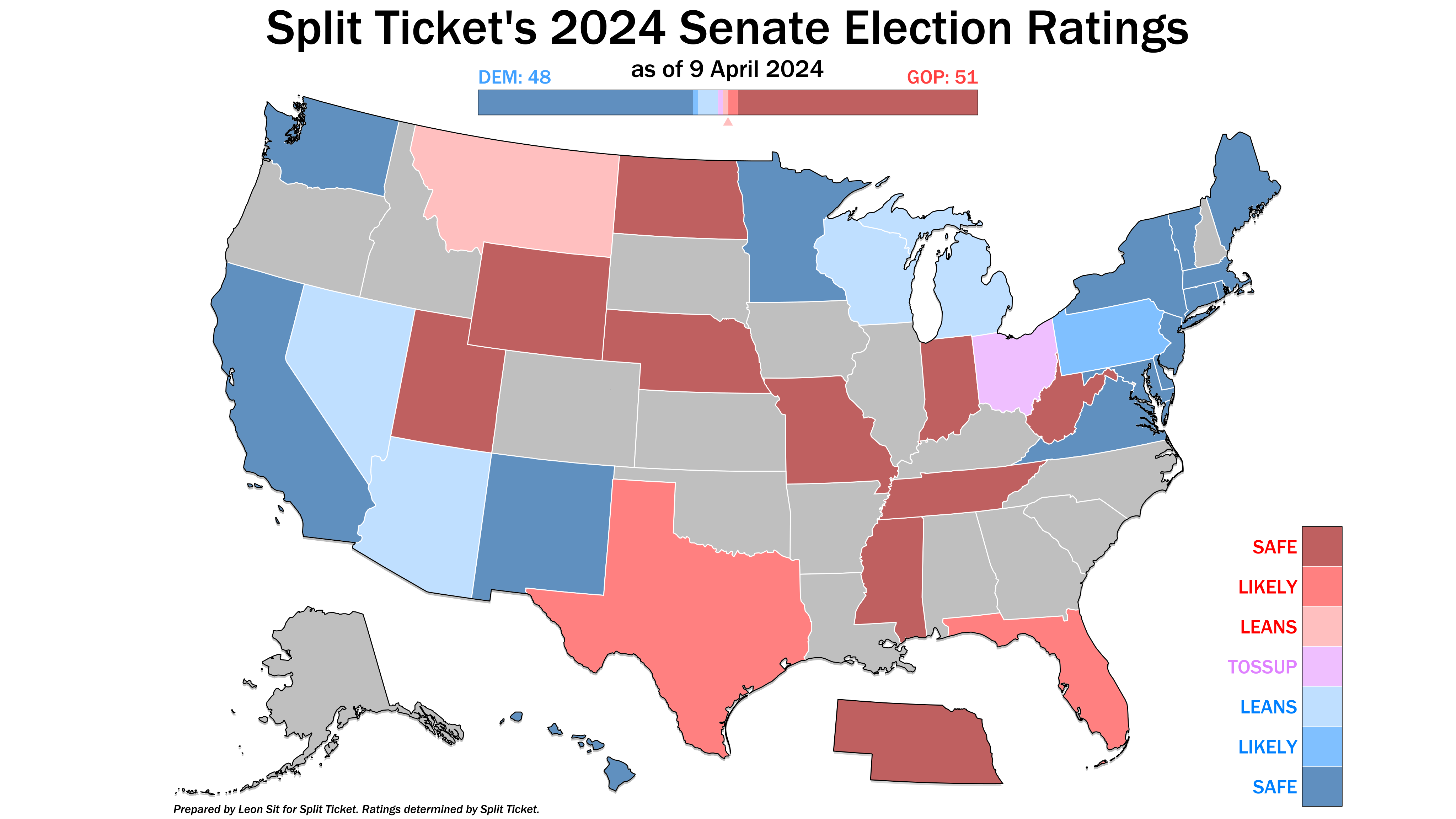Category: General Analysis
-
The Pendulum Counties

Joe Biden won the 2020 presidential election with a margin quite similar to that of the 2012 reelection of his predecessor Barack Obama — 4.5% and 3.9%, respectively. However, his coalition differed from Obama’s, having been the product of nearly a decade of electoral change. Many counties moved in one… Read More
-
Chaos In The Crosstabs

Over the course of this election cycle, perhaps no single demographic has received more attention than young voters, which many polls now suggest to be increasingly Trump-curious. This has been observed alongside a similarly shocking swing toward Biden among elderly voters. If these surveys are correct, then our political landscape… Read More
-
We Polled Young Voters. Here’s What We Found.

If you’ve followed any of the polling from this presidential election cycle, you’re probably aware of massive purported swings in the voting behavior of the youngest and oldest voters in the electorate portended by polling. Survey after survey shows Joe Biden gaining with seniors while cratering with young voters, whom… Read More
-
Primary Preview: March 17th

Later today, voters in Ohio and Illinois will select their congressional nominees for the November elections. A top-two special election in CA-20 will also be held. Split Ticket will have live coverage of all the key races starting at 7:30 EDT. In Ohio, three major candidates are vying for the… Read More
-
Our Super Tuesday Congressional Preview

Super Tuesday has traditionally been an interesting day for Presidential nominations, where at least one party has a competitive, decisive primary with states splitting multiple ways. This year will almost certainly not see a repeat, as neither the Republican nor the Democratic party has a truly contested primary. As both… Read More
-
The Cannabis Consensus: Marijuana Referendums Bridge Political Divides

As 2024 begins, Americans in twenty-four states and D.C. find themselves in jurisdictions where recreational marijuana is legal. Public opinion nationwide is now decisively in favor of legalization, with support hovering around 70%. Politicians have largely abandoned it as a polarizing issue. This was not always the case; at the… Read More
-
Trump v. Anderson: Will Colorado Succeed in Keeping Trump Off the Ballot?

The Supreme Court is no stranger to high-stakes cases with significant electoral implications. Since the 1960s, justices have resolved disputes over redistricting, the Voting Rights Act, felon disenfranchisement, campaign finance regulations, and even congressional term limits. That list is by no means exhaustive, but it highlights the fine line between… Read More


